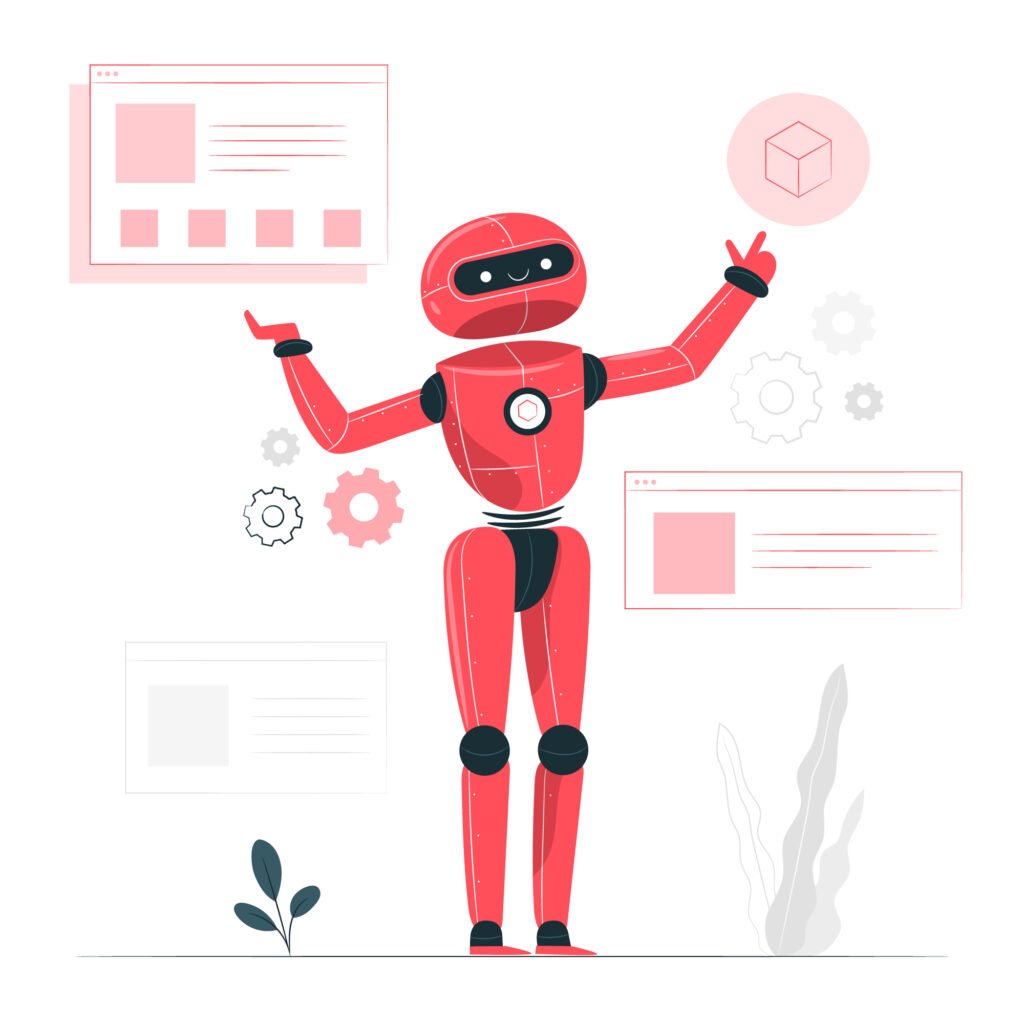AI in MarTech: Exploring Its Role, Opportunities, and Use Cases
22 Sep 2022
Igor Kelly

Artificial Intelligence has become a gamechanger in many industries. Reports say that 82% of global enterprises are currently implementing artificial intelligence solutions or are planning to do so. The marketing technology (MarTech) has positively taken up AI as well. Since AI’s importance in MarTech remains strong, businesses are increasingly leveraging its capabilities to drive innovation and efficiency. AI technologies are transforming marketing strategies by offering personalized experiences, optimizing campaign performance, and automating repetitive tasks. Companies can now analyze vast amounts of data to gain insights into consumer behavior and preferences, enabling them to tailor their offerings and communications more precisely.
This article explores the transformative impact of AI in MarTech, highlighting its role in revolutionizing marketing strategies. It delves into the opportunities AI presents for various businesses, such as personalized marketing, predictive analytics, and automation of routine tasks.
Discover how AI-driven solutions empower marketers to innovate and stay competitive in the rapidly evolving landscape of digital marketing.
Understanding AI in MarTech
AI marketing technology involves the use of artificial intelligence to enhance marketing strategies and operations. AI deals with tasks that tend to rely on human brainpower, such as learning, reasoning, problem-solving, and decision-making. In the context of MarTech, AI helps to decipher customer behavior, foreshadow trends, and create effective marketing campaigns.
When it comes to MarTech development, there are several core components of AI to be implemented to maximize effectiveness in the field. They include machine learning and data analytics, natural language processing (NLP), and computer vision and image recognition.
To segment audiences, forecast sales, and personalize marketing messages, Machine Learning and Data Analytics are used. Thanks to pattern recognition and statistical analysis, Machine learning algorithms sift through past data to detect patterns and forecast outcomes.
Natural Language Processing (NLP) is another component which is widely adopted in MarTech, applied in chatbots, sentiment analysis, and content generation to enhance communication with the customers and to analyze the feedback received from them.
Also, Computer Vision and Image Recognition are widely applied in Martech, allowing machines to perceive and process visual information from the world. Particularly in marketing, it is used for visual content analysis, product recommendations, and enhancing customer experiences through augmented reality (AR) and virtual reality (VR).
The Role of AI in MarTech
Based on Influencer Marketing Hub findings, 61.4% of marketers have adopted AI into their work. This widespread adoption demonstrates the growing recognition of AI’s potential to transform marketing strategies. AI tools help marketers automate tasks, analyze consumer data, and deliver personalized content, which improves efficiency and enhances the overall customer experience. As AI technology continues to evolve, marketers are finding innovative ways to leverage it for competitive advantage, from predictive analytics and dynamic content creation to advanced customer segmentation and real-time personalization. This trend is likely to continue as more businesses recognize the value of integrating AI into their marketing efforts. Below are a few examples of how AI can revolutionize various aspects of marketing.

- Enhancing Customer Insights. AI helps marketers puzzle out a customer profile and their behavior by analyzing data from various sources such as social media, websites, and email campaigns. Having this information in their pocket, businesses can predict customer behaviors in the future with respect to products and services they are willing to purchase. Thus, businesses will have a vision of how to effectively market the products or services.
- Automating Marketing Processes. AI-driven tools can analyze campaign performance in real-time and provide actionable insights to optimize marketing efforts. By continuously learning from data, AI helps in adjusting strategies to improve ROI, engagement rates, and conversion rates.
- Optimizing Campaign Performance. AI-driven tools can analyze campaign performance in real-time and provide actionable insights to optimize marketing efforts. By continuously learning from data, AI helps in adjusting strategies to improve ROI, engagement rates, and conversion rates.
Opportunities Provided by AI in MarTech
The opportunities offered by AI can significantly enhance marketing strategies. Here’s what marketers can expect from using MarTech AI:
- Personalized Customer Experiences. Thanks to AI, marketers can create hyper-personalization and use customer data to provide relevant content and target offers as well as product recommendations. Personalization, in its turn, heightens customer satisfaction and loyalty, which results in higher conversion rates and retention.
- Improved Customer Engagement. It’s also common for MarTech businesses in general to adopt AI-powered tools such as chatbots and virtual assistants. These tools provide instant, personalized responses to customer inquiries while enhancing engagement and satisfaction and freeing up support teams. Additionally, a business can set up AI-driven content recommendation engines. These engines will keep customers engaged by suggesting relevant content based on their interests and behavior.
- Data-Driven Decision-Making. As for decision-makers, they can also benefit from artificial intelligence. AI transforms raw data into valuable insights that can be used for informed decisions. By utilizing predictive analytics and machine learning models, one can anticipate market trends, optimize pricing strategies, and allocate resources more effectively.
- Cost and Time Efficiency. Last but not least, thanks to AI advancements like automation and precise insights, marketers and decision-makers can reduce operational costs and save time on routine tasks. This contributes to better results with fewer resources and later to higher efficiency and productivity.
Use Cases of AI in MarTech
AI is transforming the marketing landscape by enabling innovative solutions and enhancing efficiency across various areas. To fully understand AI’s impact on marketing technology, it is worthwhile to look at specific AI use cases.
Content Creation and Curation
AI tools like ChatGPT can speed up content generation. It can come up with samples of high-quality content for blogs, social media, and email campaigns. For instance, the Washington Post has an AI writer named Heliograf. It writes news articles for its website. Using this approach saves time and resources. AI helped journalists to reduce errors and misspells. It also took routine updates off the journalists’ shoulders, allowing them to center their focus on more complex articles.
Another use case of AI for content is AI algorithm analyses. By analyzing user behavior, AI algorithms can suggest personalized content. This results in increasing engagement and time spent on websites. Netflix will be a great example of this use case. Its recommendation engine analyses user behavior to recommend content, increasing user stickiness and time spent on a platform. As a result, 80% of streamed shows were offered in its recommendation panel.
Customer Service and Support
AI also has a positive impact on customer service and support. Businesses can adopt AI-powered chatbots and Virtual Assistants that provide instant, 24/7 customer support. It handles common queries and improves customer satisfaction.
For instance, Sephora has launched a chatbot on Facebook Messenger to respond to customers’ questions, offer tips on beauty, and schedule the appointment. The self-sufficiency of the chatbot was 72% of general customer queries, thus releasing 35% of the load from the human operators.
Moreover, AI helps to improve Customer Service proactively. Thanks to automated customer feedback analysis from various channels, it’s possible to identify trends and areas for improvement. Hence, the potential issues are resolved proactively. Feedback from multiple sources helps Uber find patterns and trends of the customers’ dissatisfaction before it starts to affect them significantly.
Targeted Advertising
Using AI marketing technology helps to make advertising more precise and impactful. One of the opportunities powered by AI is programmatic ad buying. AI automates the process of buying ad space in real-time, targeting the right audience at the right time to maximize ROI. For example, Google’s AI-based AdWords management service helps to make the right decisions about where the adverts should appear, and how to adjust bidding to the user’s traffic patterns. Hence, 70% of industries saw an increase in click-through rate.
AI’s ability to analyze and retrieve useful information is beneficial for Personalized Ad Targeting. It analyzes custom
er data to deliver highly targeted ads, improving click-through rates and conversions. For instance, Spotify’s AI identifies users’ listening patterns and personalizes ad recommendations within the application. At least 60% of the music being played from Spotify is selected based on hints from Artificial Intelligence.

Sales Forecasting and Lead Scoring
Sales efforts can be strengthened and optimized by AI as well. AI models predict future sales trends, helping businesses plan inventory and marketing strategies more effectively. For example, Salesforce has its Einstein AI that determines the possibility of success in sales and what measures should be taken to seal a deal.
And not only, but also business can implement AI-driven lead scoring systems. They work as follows: AI evaluates leads based on their likelihood to convert, while sales teams prioritize efforts on high-potential prospects. Such an approach helps not to miss a lead with high-potential conversion. For this purpose, HubSpot uses artificial intelligence. It scans the leads and gives them scores that can help the sales teams to prioritize the opportunities.
Social Media Monitoring and Analysis
For successful marketing campaigns, a business should be present where their customers abide. Using AI to monitor social networks navigates marketers to their customers thanks to sentiment analysis and social listening. AI tools analyze social media conversations to keep business in the loop of the general public trends, helping brands stay relevant. For instance, Coca-Cola uses the AI social listening application to monitor specific mentions of a brand and the sentiment expressed on different social media platforms.
Apart from this, Influencer Identification and Engagement will also help to understand the clientele better. AI identifies key influencers in a brand’s niche and facilitates targeted engagement strategies to accelerate marketing efforts.
Conclusion
AI technology in marketing provides tools to enhance customer insights, automate processes, and optimize marketing performance. It presents a number of opportunities, such as personalized experiences and data-driven decision-making. All of them drive the future of marketing. Over time, AI’s role in MarTech will only become more significant, offering innovative solutions to meet the dynamic needs of the marketing departments.
To start leveraging AI for your business, reach out to Lightpoint Global for AI software development services.